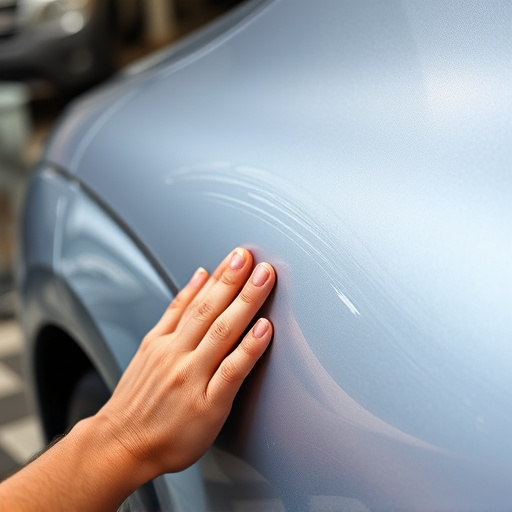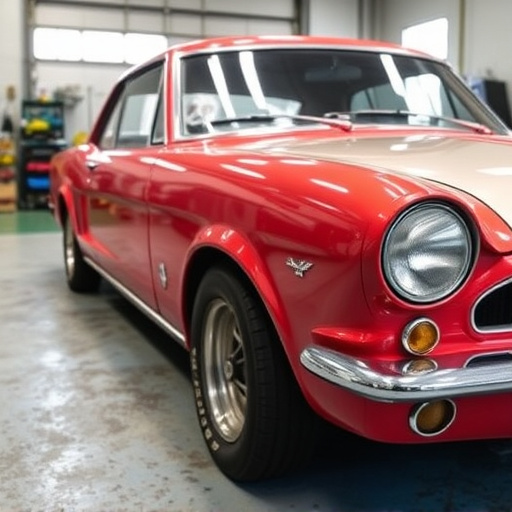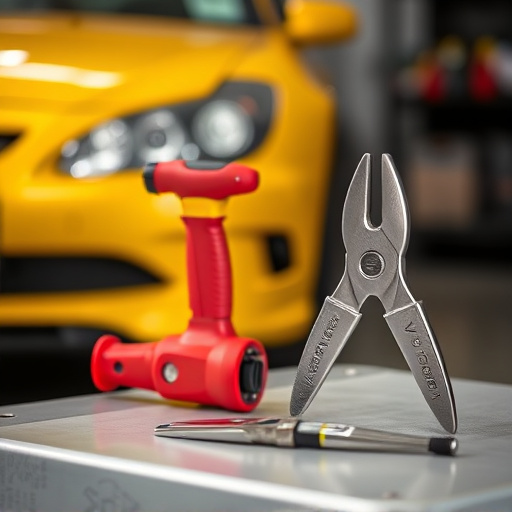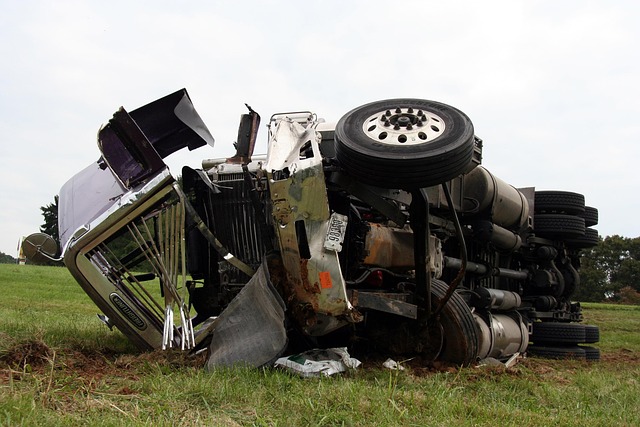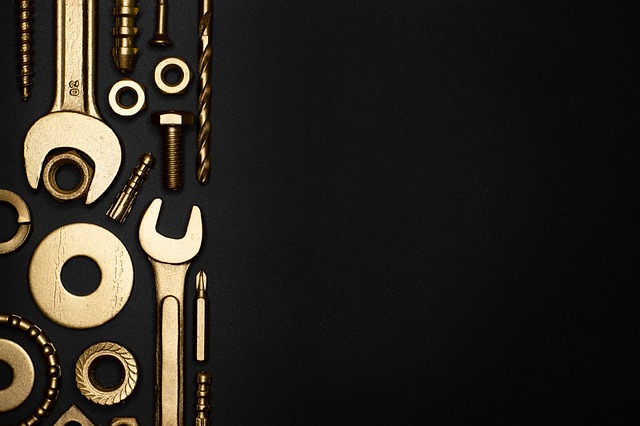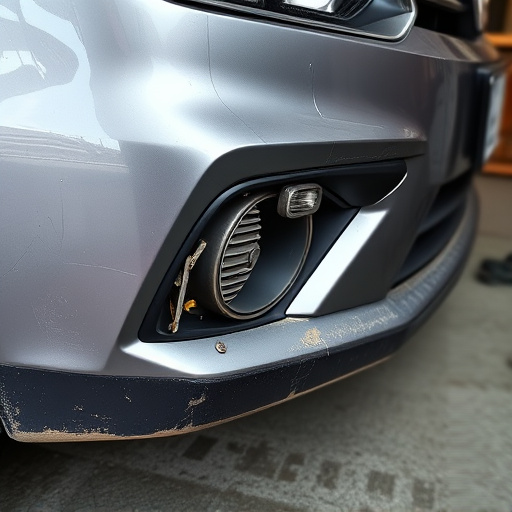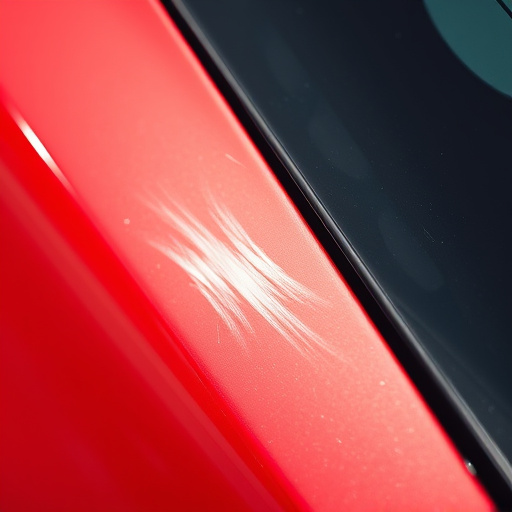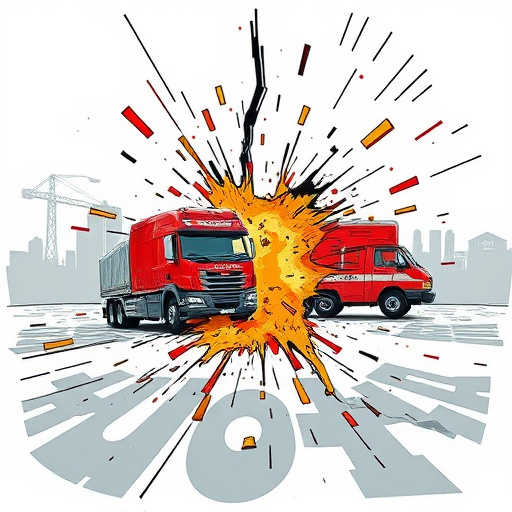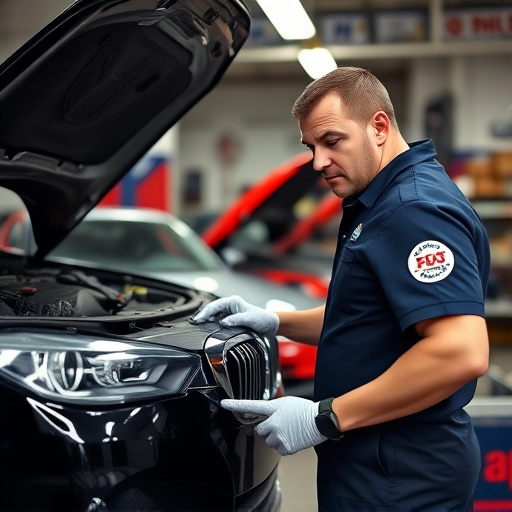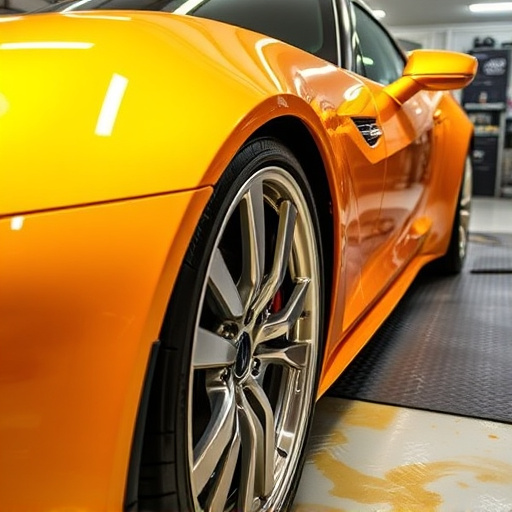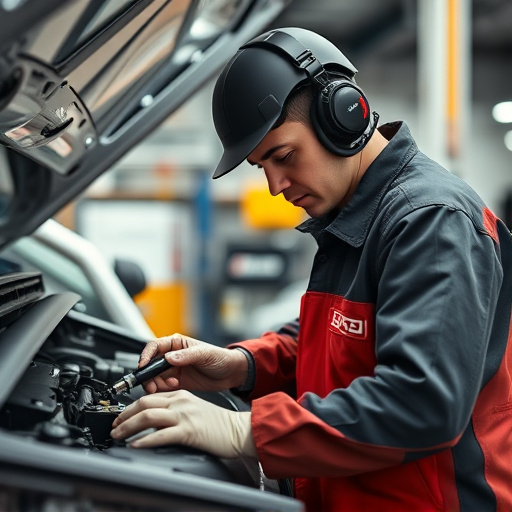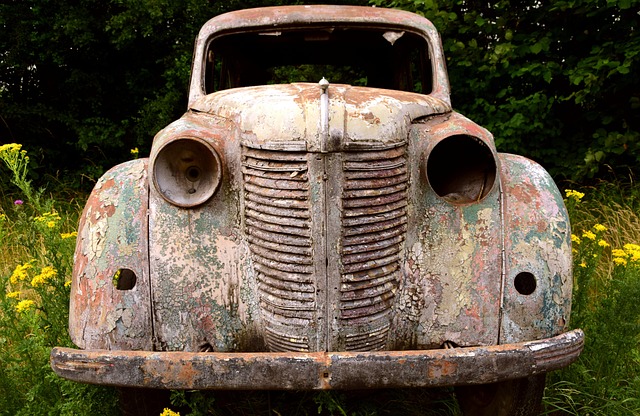Traditional rust treatments have limitations in complex geometries and harsh climates, leading to a demand for anti-corrosion materials that offer superior protection without drawbacks. Modern anti-corrosion materials, including galvanization, polymer coatings, and innovative metal alloys, provide exceptional durability and longevity against corrosion, outperforming short-term fixes like painting. These advanced solutions are particularly valuable in automotive restoration and collision damage repair, offering a sustainable and cost-effective choice for robust protection.
In the realm of material preservation, combating corrosion is an ongoing challenge. This article delves into the evolution of rust treatments, focusing on traditional methods and their limitations, as well as exploring cutting-edge anti-corrosion materials. We present a comparative analysis highlighting the effectiveness and longevity of modern solutions versus conventional techniques. By understanding these advancements, professionals can make informed decisions to ensure longer-lasting, corrosion-resistant structures, ultimately enhancing durability in diverse applications.
- Understanding Traditional Rust Treatments and Their Limitations
- Exploring Anti-Corrosion Materials: Advanced Protection Solutions
- Comparative Analysis: Effectiveness and Longevity of Modern vs Traditional Methods
Understanding Traditional Rust Treatments and Their Limitations
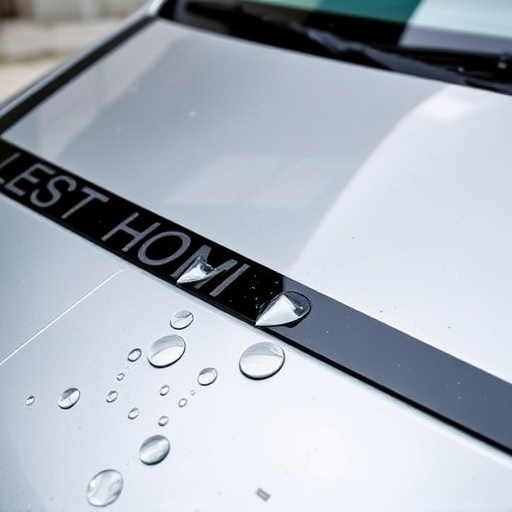
Traditional rust treatments have long been a go-to solution for protecting metal surfaces, particularly in the automotive industry. These methods often involve applying coatings or paints to prevent moisture and oxygen from coming into contact with the metal, thereby slowing down the corrosion process. However, despite their effectiveness in many cases, these treatments come with limitations. For instance, they are not always suitable for complex geometries found in modern vehicle body shops, where hail damage repair might require intricate repairs that traditional coatings struggle to cover evenly.
Moreover, over time, these protective layers can chip, crack, or wear off, exposing the metal beneath and accelerating corrosion. This is especially problematic in regions with harsh climates or high humidity levels, which are common in many vehicle body shops dealing with various types of damage, from minor dents to extensive hail damage repair. As a result, there’s a growing demand for more robust and long-lasting anti-corrosion materials that can offer superior protection without the drawbacks associated with traditional rust treatments.
Exploring Anti-Corrosion Materials: Advanced Protection Solutions
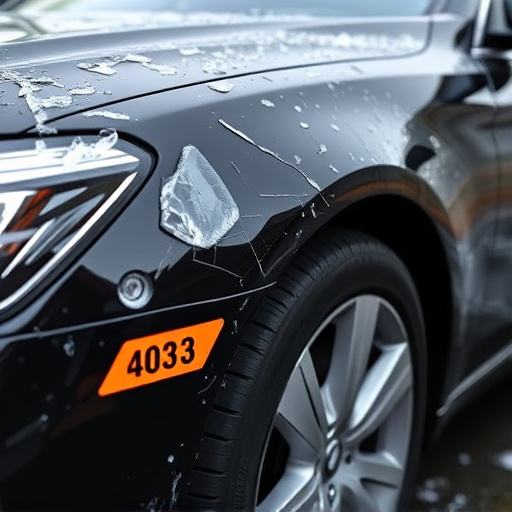
Anti-corrosion materials have emerged as advanced protection solutions, revolutionizing how we safeguard our possessions from the relentless impact of rust and decay. These innovative materials go beyond traditional rust treatments, offering longer-lasting, more efficient alternatives for various industries, including automotive sectors like collision repair centers and car body shops.
Compared to conventional methods, anti-corrosion coatings and finishes provide enhanced durability, resisting corrosion even in extreme environments. They are meticulously designed to create a protective barrier, preventing metal deterioration and prolonging the lifespan of structures and vehicles. This is particularly beneficial for collision repair shops, where restoring damaged cars to their original condition involves meticulous work and the use of high-quality materials to ensure longevity.
Comparative Analysis: Effectiveness and Longevity of Modern vs Traditional Methods
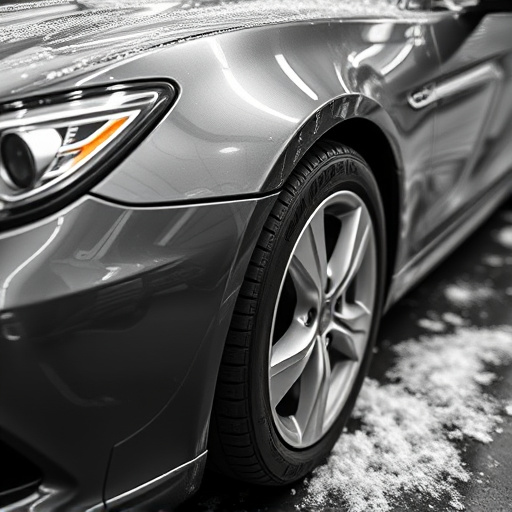
In the realm of anti-corrosion materials, a comparative analysis reveals modern solutions offering significantly enhanced effectiveness and longevity in contrast to traditional rust treatments. Modern anti-corrosion materials employ advanced technologies like galvanization, polymer coatings, and innovative metal alloys, providing robust protection against corrosion for extended periods. These cutting-edge methods not only prevent rust formation but also offer superior durability, making them a preferred choice in industries such as automotive restoration and collision damage repair.
Traditional rust treatments, while effective in the short term, often suffer from limited longevity and reduced protection against corrosive elements. Methods like painting and surface coatings may provide temporary solutions, but they are prone to chipping, peeling, or failing over time. In contrast, modern anti-corrosion materials are designed to withstand harsh environmental conditions, offering a more sustainable and cost-effective solution for auto body shops and other sectors reliant on robust corrosion protection.
In comparing traditional rust treatments with modern anti-corrosion materials, it’s evident that the latter offer superior effectiveness and longevity. Advanced anti-corrosion coatings and technologies provide robust protection against corrosion, outperforming conventional methods in diverse environments. As we move forward, adopting these innovative solutions can significantly enhance structural integrity and reduce maintenance costs for various industries.
